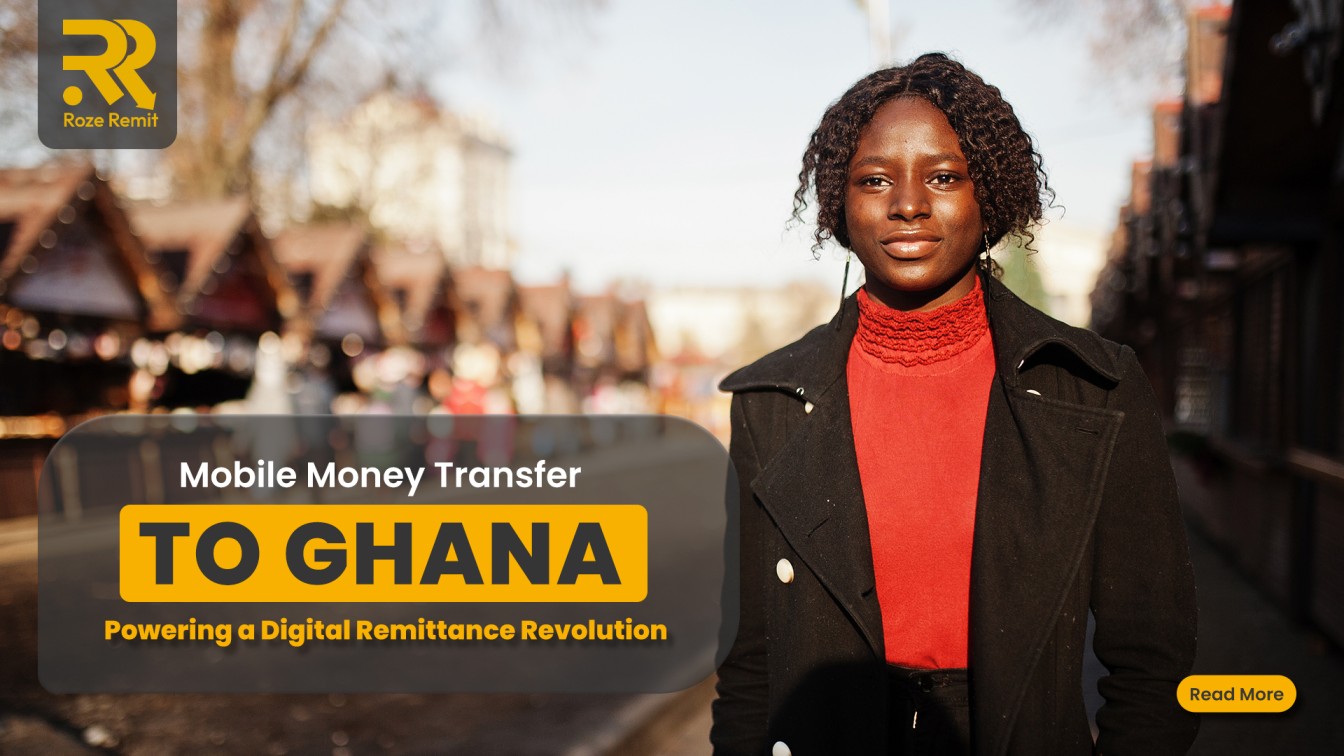Mobile Money Transfer to Ghana: Powering a Digital Remittance Revolution
14 November 2025

The landscape of mobile money transfer in Ghana is undergoing an unprecedented transformation, driven by rapid technological adoption, regulatory innovation, and the urgent need for fast, secure, and affordable ways to send money home. As Ghanaians worldwide seek efficient solutions to support families and businesses, the country’s mobile money ecosystem stands out as a beacon of financial inclusion and digital progress. This article provides a comprehensive, news-style analysis of the sector, highlighting key trends, operational details, and the role of Ghanaian remittance services in shaping the future of international money transfers.
Ghana’s Mobile Money Boom: A Sector in Overdrive
Ghana’s mobile money sector has witnessed explosive growth in recent years. In the first two months of 2025 alone, transaction values soared to GH¢649.2 billion, a staggering 64.68% year-on-year increase. This surge reflects not only the convenience and security of mobile money but also growing consumer confidence in digital financial services. The number of registered mobile money accounts reached 74.1 million by February 2025, up from 66.9 million the previous year, while active agents numbered over 411,000, ensuring accessibility even in remote communities.
This robust agent network is vital for extending financial services to rural and underserved populations, where traditional banking infrastructure remains limited. The abolition of the E-Levy, a 1.5% tax on electronic transfers, has further accelerated adoption, making mobile money the dominant force in Ghana’s financial sector.
How Mobile Money Transfer to Ghana Works
Sending Money from Abroad
The process of mobile money transfer to Ghana is designed for simplicity and speed. Leading platforms such as WorldRemit, Vodafone, AirtelTigo, and MTN Ghana enable instant transfers to personal mobile wallets. Here’s how it works:
Choose a Provider: Select a reputable remittance service supporting Ghanaian mobile wallets. WorldRemit, for example, partners with MTN Ghana, AirtelTigo, and Vodafone.
Recipient Details: You’ll need the recipient’s full name (matching their mobile wallet registration), city, and a 9-digit mobile money account number. MTN numbers typically begin with 24, 54, or 55, while AirtelTigo numbers start with 26 or 56.
Transfer Limits: MTN Ghana allows up to GHS 15,000 per transfer, AirtelTigo up to GHS 2,000, and Vodafone up to GHS 4,800 per transaction, with wallet limits at GHS 10,0001.
Fees: Most international providers do not charge recipients for receiving funds. However, local operators may apply a small fee when cash is withdrawn, typically 1% for amounts above GHS 50 and a fixed charge for smaller withdrawals.
E-Levy Exemption: International remittances sent to Ghanaian mobile wallets are exempt from the E-Levy, ensuring the full value of your transfer reaches the recipient.
What Recipients Need
To receive a mobile money transfer, recipients must have:
A fully registered and active mobile money account (MTN, AirtelTigo, or Vodafone)
Accurate personal details match their account registration
Access to a mobile phone to receive transaction notifications
Interoperability: Seamless Transfers Across Networks and Banks
A landmark achievement in Ghana’s digital finance journey is the introduction of mobile money interoperability. Launched in Accra, this system allows customers to transfer funds between different mobile networks (MTN, AirtelTigo, Vodafone) and between mobile wallets and bank accounts instantly and seamlessly. This innovation eliminates the barriers of network exclusivity, allowing users to transfer funds without concern for the recipient’s mobile network provider.
Ghana’s interoperability system is lauded as one of the most advanced in Africa, reinforcing the country’s position as a leader in digital payments. The ongoing integration of e-Zwich (a biometric smart card system) will further enable transfers between mobile wallets, bank accounts, and e-Zwich accounts, completing the “Financial Inclusion Triangle”.
The Expanding Digital Remittance Market
The digital remittance market in Ghana is on a strong growth trajectory, projected to expand at a rate of 4.34% in 2025 and reach 11.45% by 2029. This growth is fuelled by the increasing reliance of diaspora communities, migrants, and businesses on digital channels for international money transfers. Digital remittance platforms offer unmatched convenience, speed, and cost-effectiveness compared to traditional channels, driving financial access for unbanked and underbanked populations.
Government policies are actively promoting digital remittances, streamlining regulatory processes to encourage competition and innovation, investing in digital payment infrastructure, and collaborating with international partners to enhance efficiency and security.
Key Players in Ghanaian Remittance Services
Several Ghanaian remittance services and international platforms facilitate mobile money transfers to Ghana:
WorldRemit: Allows instant transfers to all major mobile money accounts with transparent fees and robust security.
MTN Ghana, AirtelTigo, Vodafone: Local telecom giants providing the backbone for mobile wallet services and agent networks.
Banks and Money Transfer Operators: Increasingly integrated with mobile money systems, enabling direct transfers between bank accounts and mobile wallets.
The Impact on Financial Inclusion and Economic Development
Mobile money has become a cornerstone of financial inclusion in Ghana. With nearly 900,000 registered agents and over 74 million accounts, mobile money platforms have bridged the gap between formal financial services and the informal sector. This is particularly significant for rural communities, where access to banks is often limited.
Digital remittance services empower families, support small businesses, and drive economic development by ensuring funds are transferred quickly, securely, and at minimal cost. The growing digital payment ecosystem also supports the government’s ambition for a cash-lite economy, reducing the costs and risks associated with cash handling.
Challenges and Opportunities
While the outlook for mobile money transfer to Ghana is overwhelmingly positive, challenges remain. Regulatory compliance, anti-money laundering (AML) rules, and network connectivity issues in rural areas can pose barriers to seamless service delivery. Nevertheless, ongoing investments in infrastructure and regulatory reform are addressing these challenges, paving the way for broader access and innovation.
The Future of Mobile Money Transfers in Ghana
With the removal of the E-Levy and continued expansion of agent networks, experts predict even faster growth in mobile money adoption. Interoperability, integration with banking systems, and the rise of advanced fintech solutions will further enhance the user experience, making it easier than ever to send money home and support economic development.
Conclusion
The evolution of mobile money transfer in Ghana is a testament to the power of digital innovation in transforming lives and economies. As the sector continues to grow, supported by robust Ghanaian remittance services and forward-thinking policies, Ghanaians at home and abroad can look forward to a future where international money transfers are faster, safer, and more inclusive than ever before.




